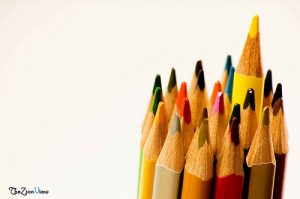The world was swept up in Applemania yesterday as they unveiled the iPhone 5. As is usually the case, responses range from “yawn” to “life-altering!” But most of us will need to wait another week before we can get our hands on one to decide for ourselves.
But what would happen if you handed an iPhone 4S to people on the street but told them it was a new iPhone? Jimmy Kimmel thought it would fun and it’s solid gold:
Notice that one guy is even holding an identical iPhone 4S in his hand and still insists that it’s lighter and faster! Why is this happening?
Longing for Belonging
 Part of it is our inherent need to belong. We humans hate to stand out. One can experience this first hand in the moments just before they are introduced to speak in front of a crowd. This fear makes a great deal of evolutionary sense, when you consider that laggards who fell behind a group could find themselves on the wrong end of a saber tooth tiger meal. As a result, we find comfort in the acceptance and endorsement of our peers.
Part of it is our inherent need to belong. We humans hate to stand out. One can experience this first hand in the moments just before they are introduced to speak in front of a crowd. This fear makes a great deal of evolutionary sense, when you consider that laggards who fell behind a group could find themselves on the wrong end of a saber tooth tiger meal. As a result, we find comfort in the acceptance and endorsement of our peers.
This is the whole concept behind celebrity endorsements. Although we may not think of Madonna or Michael Jordan as peers, the reality is that our brains evolved in such a way that any familiar face “feels” like a friend to us – regardless of whether it’s because we see them in person or on TV. “The brain simply doesn’t realize that it’s being fooled by TV and movies, says sociologist Satoshi Kanazawa, lecturer at the London School of Economics. ‘Hundreds of thousands of years ago, it was impossible for someone not to know you if you knew them. And if they didn’t kill you, they were probably your friend.’”
Evolutionary biologist S.L. Washburn wrote:
Most of human evolution took place before the advent of agriculture when men lived in small groups, on a face-to-face bases. As a result human biology has evolved as an adaptive mechanism to conditions that have largely ceased to exist. Man evolved to feel strongly about few people, short distances, and relatively brief intervals of time; and these are still the dimensions of life that are important to him.
Great Expectations
Perhaps even more powerful than peer pressure is the power expectations have to actually shape our experiences. In his book Predictably Irrational, Dan Ariely says “When we believe beforehand that something will be good, it generally will be good – and when we think it will be bad, it will be bad.”
This was his conclusion following a series of experiments on the effect of expectations. In one experiement, he offered free beer to MIT students. He offered them two flavors, one of which was regular Budweiser and the other was Budweiser with two drops of balsamic vinegar. One group of students was given the samples without any introduction. This group showed a strong preference for the beer + vinegar combination. However, when the second group was told before tasting that the second beer had vinegar added to it, they much preferred the plain version.
In a similar experiment, Ariely offered students free coffee. Over a series of days, he switched up the containers that held the condiments. For one group, they used beautiful glass-and-metal containers on fancy brushed metal trays. Another group was given styrofoam cups with hand-written labels in a red felt pen. The students who were given the condiments using the fancy serving ware gave much higher ratings for the coffee’s flavor than those who were served using the styrofoam cups.
As a company, Apple is fanatical about setting expectations. Look at the way they package their products. The packaging sets an expectation about what’s inside. And their product launch spectacles set expectations, too. They’re so powerful, in fact, that people can hold identical phones in each hand and be utterly convinced that one is lighter, faster and shinier than the other.


